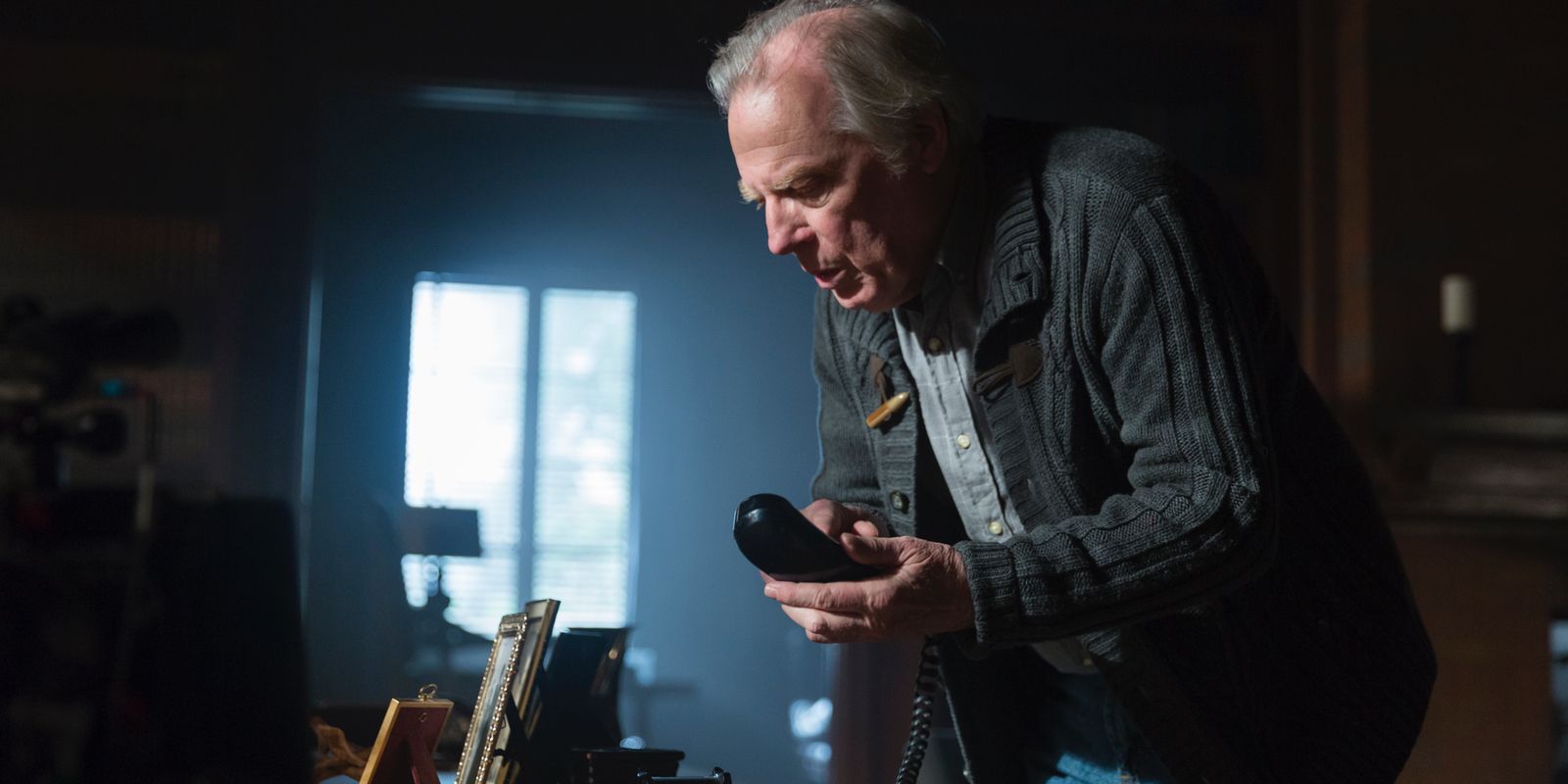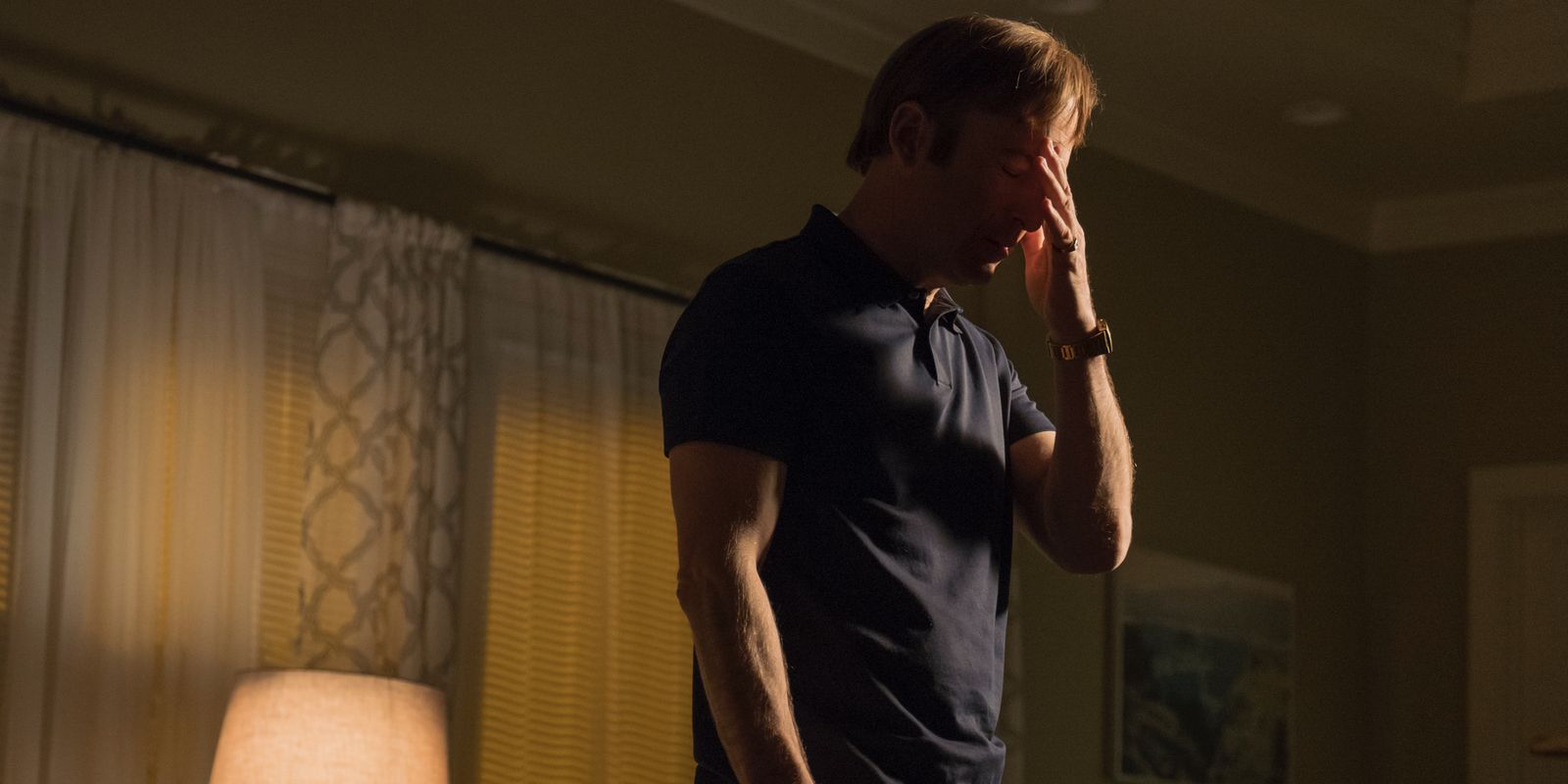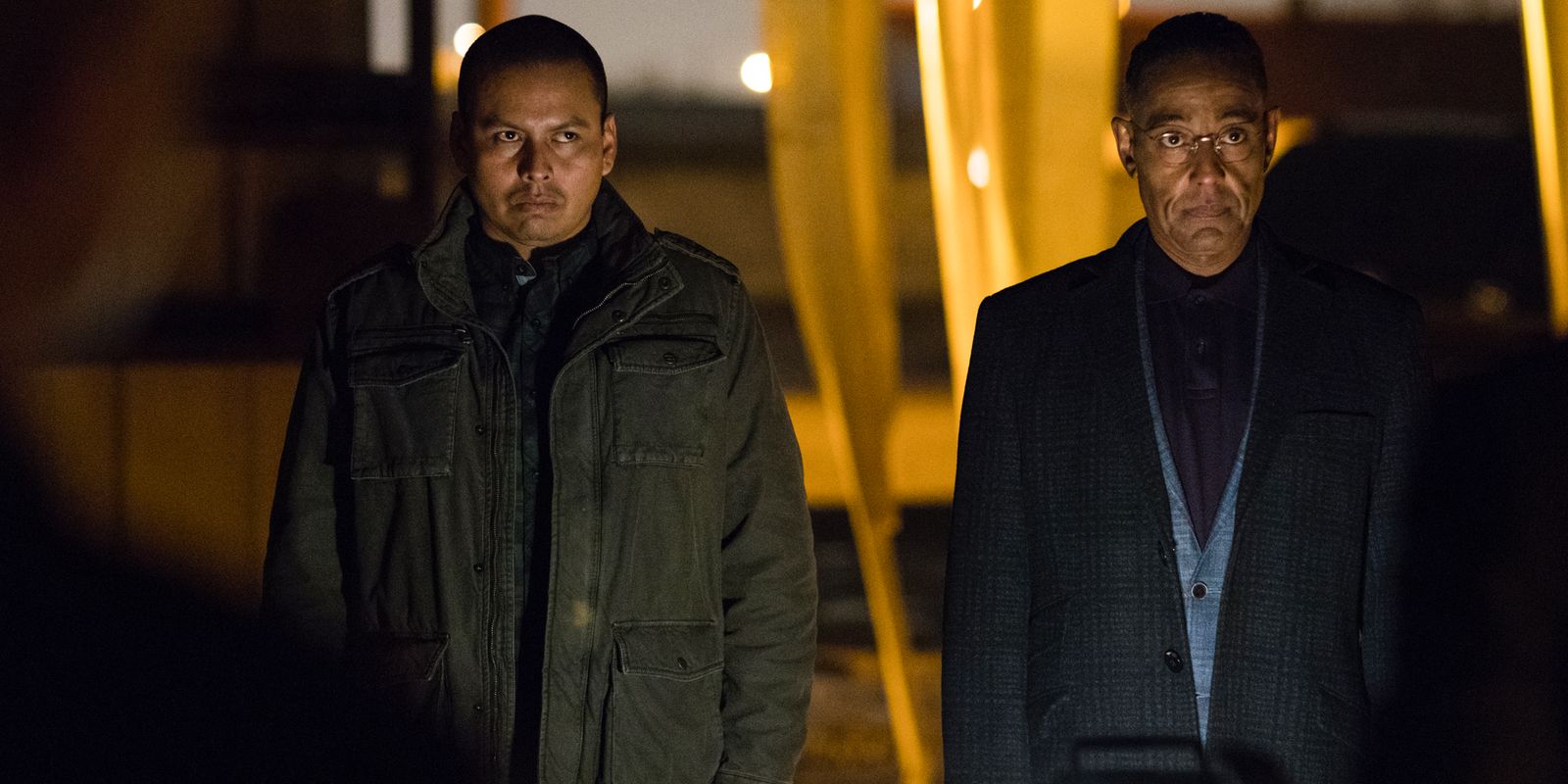Better Call Saul ends season 3 on a somber note, as Jimmy and Chuck play to their strengths and succeed in tearing everything down.
It was a given that Better Call Saul would eventually find a way to connect the various dots between Jimmy McGill and his brightly attired alter ego Saul Goodman; that is, after all, the conceit of this prequel series. Aside from Jimmy turning his back on the mild-mannered persona he'd crafted in order to create a working business model in the surprisingly flourishing elder care area of New Mexico law, and becoming the rather cold-hearted legal council of drug dealers, thieves, and other crooks, his story is mostly written. It's still a fascinating trip to take, however, and each season of the series has so far made Slippin' Jimmy's tumble into a much darker world an entertaining illustration of how a supporting character can become a leading man in his own right. Where Saul really excels in season 3, however, is in telling the stories whose outcomes have yet to be written.
It's an example of Peter Gould and Vince Gilligan understanding how one good turn deserves another (and another) and how to capitalize on that without overstaying their welcome. At the end of season 3, Better Call Saul finds itself looking at two supporting characters, Chuck McGill and Kim Wexler, and handing them two of the most compelling, nerve-wracking, and fulfilling story lines the series seen so far. Granted, a lot of that has to do with everything we know about the future of Jimmy McGill, Mike Ehrmantraut, Hector Salamanca, and the recently introduced (or re-introduced to audiences, anyway) Gus Fring. These stories have already been told, and with the exception of Jimmy (Saul or Gene, depending on his place in the timeline), they've also ended pretty badly. As such, Chuck and Kim's tales hold a certain allure of both newness and mystery; neither is featured at all in Breaking Bad, so something has to happen to them between now and when Walter White parks his Pontiac Aztek outside that Albuquerque strip mall.
The question of "What happens next?" is a solid enough foundation to build a series on, but Better Call Saul has demonstrated the unique ability to ponder that query while also asking, "What happened when?" It's a level of narrative juggling that isn't seen too often, and not just because prequels don't usually work as well as this one does. As a result, the blending of those two inquiries gives the series a season finale that brilliantly shows what happens when characters put themselves first, and how their radically different paths in life dictate not only the way others respond to that "me first" decision, but also how they do as well.
Jimmy's path has always been one filled with shortcuts, so it's no surprise that, after getting hit with a yearlong suspension following a disbarment hearing he would cut corners in order to maintain the business he'd built with Kim. His efforts to manipulate the Sandpiper settlement and to get his money faster led to an elderly woman's friends being poisoned against her. It was a testament to the series that Jimmy's manipulation of Irene Landry and her friends would go down as one of the more upsetting examples of what he will one day become, underlining the moral vacancy of his choice and pushing him the closest he's ever been to Saul Goodman. However, just as Jimmy appeared on the precipice of a major change, and was poised to pull Kim down along with him, 'Lantern' deftly moved both characters away from the edge – for now – and instead watched as Chuck took what appears to be a fateful plunge.
After realizing he can't un-poison the well against Irene without exposing he was the source of the pollution, Jimmy scuttles his would-be legal empire to set things right with an old woman. "I'm not good at building sh**. I'm excellent at tearing it down," he tells Kim, who's in the midst of a post-car accident staycation, courtesy of Blockbuster Video and her undying admiration of Atticus Finch. It's here that Better Call Saul demonstrates the importance of Kim in keeping Jimmy from descending completely into the morass of corruption he finds himself struggling to extricate himself from at the end of Breaking Bad. But it also sows the seeds of her exit from the series – one that hopefully won't see her fall victim to anything other than some professional aspirations brought on by one of the greatest fictional lawyers of all time.
It's a subtle succession of moves that sets up the next step for the series, as Kim's growing dissatisfaction with helping regional banks get bigger is contrasted with the growing desperation of Jimmy, Nacho, and of course Chuck. 'Lantern' doesn't have much time to devote to Nacho's attempt to assassinate Hector on the sly, but the excitable cartel member's heart attack certainly opens the door for the show to move a step closer to the Breaking Bad timeline. That may push Gus and Mike's partnership into Jimmy's territory, especially since he's now in the market for a new business model. Better Call Saul demonstrating a greater proximity to Breaking Bad was inevitable, but considering the restraint with which Gould and Gilligan used Gus, Mike, and even Lydia Rodarte-Quayle this season, a greater connection to the story of Walter White won't mean this series loses the unique identity it's carved out for itself.
But before any of that can become a concern, Better Call Saul has a cliffhanger ending to deal with. Chuck's slow decent over the past two seasons turned into a potentially deadly tailspin after the elder and arguably smarter McGill brother was played for a fool in open court. The aftermath of what appeared to be the total severing of what relationship the brothers McGill had left turned into a brief period of improvement for Chuck, as he seemed to get his illness under control. What goes up must come down, however, and 'Lantern' makes excellent use of Michael McKean doing career-best work by showing how equally gifted the McGill brothers are in the art of demolition – in their personal, professional, and physical lives.
Last week, Howard Hamlin dressed Jimmy down as someone motivated entirely by his own self interests, and this week he does the same to Chuck while showing the McGill of Hamlin, Hamlin & McGill out the door. After cutting ties with Jimmy, brutally telling his brother "You've never mattered all that much to me" and perhaps inadvertently sparking more of the Saul persona and simultaneously recriminating himself by saying, "Why have regrets?... In the end, you're going to hurt everyone around you", Chuck falls deeper into his mental illness, tearing apart his house and ultimately appearing to commit suicide by kicking an oil lantern from his desk, setting fire to what's left of his home.
That's a lot to unpack in an hour of television, and Better Call Saul admirably manages it by only running slightly longer than usual. It's a difficult end to what was an excellent season of television – perhaps even the series' best – inching the show closer to its endpoint but doing so in inventive and unexpected ways. In the end, Better Call Saul closes season 3 on a somber note, as Jimmy and Chuck play to their strengths and succeed in tearing everything down.
Next: Better Call Saul’s Rhea Seehorn On Kim Wexler’s Ultimate Fate
We will have news for you on the future of Better Call Saul as it is made available.
Photos: Michele K. Short/AMC/Sony Pictures Television



